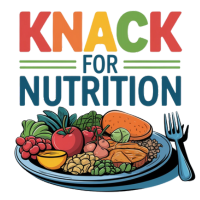Because You’re Worth It
Healthy Eating as an Investment in Yourself
Why You Deserve the Best
You’ve heard it before: “You are what you eat.” But what if we took that saying one step further? Eating well isn’t just about looking good or hitting a number on the scale—it’s about making an investment in your future self. When you choose nutrient-rich foods and prioritize your health, you’re affirming that you’re worth the time, effort, and resources it takes to feel your best.
Let’s dive into how healthy eating can be a powerful act of self-care and why you deserve the very best when it comes to what’s on your plate.
The Long-Term Payoff of Quality Nutrition
When you prioritize healthy eating, you’re not just fueling your body for today—you’re laying the foundation for long-term physical and mental well-being. Consider these benefits:
- Improved Energy Levels: Whole foods like fruits, vegetables, and lean proteins provide sustained energy without the crashes associated with processed foods.
- Enhanced Mental Clarity: Nutrient-dense foods, such as those rich in omega-3 fatty acids and antioxidants, support brain health and cognitive function.
- Reduced Risk of Chronic Diseases: Eating a diet rich in whole grains, healthy fats, and fresh produce helps prevent conditions like heart disease, diabetes, and hypertension.
- Better Mood Regulation: Foods high in vitamins and minerals, such as magnesium and vitamin B6, can help combat stress and improve overall mood.
Investing in quality nutrition now means you’re actively working toward a healthier, happier future.
Making the Commitment: You’re Worth the Effort
Choosing to eat well often requires effort, but it’s a powerful way to show yourself love and care. Here’s how to start:
- Stock Your Pantry with Purpose:
- Focus on high-quality staples like whole grains, nuts, seeds, and healthy oils.
- Avoid ultra-processed foods that add calories without nutrients.
- Prioritize Meal Preparation:
- Dedicate time each week to plan and prepare meals.
- Try batch cooking or prepping ingredients in advance to make healthy eating more accessible during busy days.
- Mindful Grocery Shopping:
- Choose fresh, seasonal produce and aim to buy organic when possible.
- Read labels to avoid hidden sugars and unhealthy additives.
- Upgrade Your Snacks:
- Replace chips and sugary treats with nutrient-dense options like trail mix, Greek yogurt, or veggie sticks with hummus.
Foods That Pay Dividends
Certain foods pack an extra punch when it comes to health benefits. Incorporating these into your diet is a surefire way to invest in yourself:
- Leafy Greens: Spinach, kale, and arugula are rich in vitamins A, C, and K, supporting everything from bone health to immune function.
- Berries: Blueberries, strawberries, and raspberries are antioxidant powerhouses that protect your cells from damage.
- Fatty Fish: Salmon, mackerel, and sardines are loaded with omega-3s, which support heart and brain health.
- Whole Grains: Foods like quinoa, farro, and brown rice provide lasting energy and fiber for digestive health.
- Nuts and Seeds: Almonds, walnuts, and chia seeds deliver healthy fats, protein, and essential nutrients like magnesium.
Breaking the Myths About Healthy Eating
Healthy eating is often misunderstood. Let’s tackle some of the most common myths:
- “Healthy eating is too expensive.” While organic produce and specialty items can add up, staples like beans, rice, frozen vegetables, and in-season fruits are budget-friendly options. Meal prepping can also reduce food waste and save money over time.
- “Healthy eating is too time-consuming.” Preparing nutritious meals doesn’t have to be a chore. Invest in quick-cook grains, pre-washed greens, and frozen fruits for smoothies. A simple sheet pan dinner with protein and veggies takes less than 30 minutes.
- “Healthy food is boring.” On the contrary, experimenting with spices, herbs, and international cuisines can make healthy eating an exciting culinary adventure.
Emotional Eating and Mindful Alternatives
Emotional eating can sabotage even the best intentions. Stress, boredom, or sadness often drive cravings for sugary or processed comfort foods. Here’s how to combat it:
- Practice Mindful Eating: Pay attention to your hunger cues and avoid eating out of habit or emotion. Pause before reaching for snacks to ask yourself if you’re truly hungry.
- Find Healthier Comfort Foods: Satisfy cravings with healthier alternatives. Swap ice cream for frozen yogurt topped with berries, or chips for air-popped popcorn seasoned with spices.
- Stress Management Techniques: Instead of turning to food, try stress-relieving activities like journaling, walking, or deep breathing exercises to address emotional triggers.
- Keep a Food Journal: Documenting what you eat and how you feel can help identify patterns and manage emotional eating more effectively.
The Role of Hydration
Hydration is a key part of nutrition that’s often overlooked. Staying hydrated impacts every system in your body:
- Energy Boost: Even mild dehydration can lead to fatigue. Drinking enough water helps maintain consistent energy levels throughout the day.
- Improved Digestion: Water aids in breaking down food and absorbing nutrients more efficiently. Pair meals with a glass of water to support your digestive system.
- Healthy Skin: Proper hydration promotes skin elasticity and helps flush toxins, giving you a natural glow.
Tips for Staying Hydrated:
- Start your day with a glass of water before coffee or tea.
- Carry a reusable water bottle and set reminders to drink throughout the day.
- Add flavor with slices of lemon, cucumber, or fresh mint for a refreshing twist.
Breaking the Cycle of Food Guilt
Part of investing in yourself through nutrition is letting go of the guilt often associated with food. This means:
- Embracing Balance: Allow room for treats and indulgences while focusing on a predominantly healthy diet.
- Mindful Eating: Pay attention to hunger and fullness cues, and savor each bite.
- Celebrating Progress: Recognize that every small change contributes to your overall well-being.
You’re Worth It
Choosing to eat well is an investment in your future self—a declaration that you deserve the best. By prioritizing nutrient-dense foods, making time for preparation, and embracing balance, you’re not just nourishing your body—you’re affirming your worth. So, take that first step, whether it’s swapping out a sugary snack for fresh fruit or cooking a homemade meal. Because when it comes to your health and happiness, you are absolutely worth it.
© 2025 by knackfornutrition.com All rights reserved. No part of this document may be reproduced or transmitted in any form or by any means, electronic, mechanical, photocopying, recording, or otherwise, without prior written permission.






